Yuliya Yurchenko and Paul Jay discuss national identity, sovereignty, and the war in Ukraine. Yurchenko is an activist for the Ukraine Solidarity Campaign and an academic at the University of Greenwich.
Paul Jay
Hi. Welcome to theAnalysis.news. I’m Paul Jay. We’ll be back in just a few seconds to talk with Yuliya Yurchenko about the situation in Ukraine. Please don’t forget we can only keep doing this when you donate, subscribe and share. Come over to the website and join the email list. Be back in just a few seconds.
Now joining me to discuss the current situation and the big picture of the war in Ukraine is Yuliya Yurchenko. She’s a Senior Lecturer in political economy at the Political Economy Governance, Finance and Accountability Institute at the University of Greenwich in the U.K.. She’s Vice-Chair of the Critical Political Economy Research Network. She’s an activist at the Ukraine Solidarity Campaign. She’s part of the Ukrainian social movement. Thanks very much for joining me.
Yuliya Yurchenko
Thank you.
Paul Jay
So, before we get into the bigger picture conversation, talk about the recent developments in Ukraine. Particularly a lot of people following this and analyzing this believe that the United States wants to— and they actually say this openly— use the Ukrainian war to weaken Russia. I guess that’s all very fine when you’re sitting in Washington, but if you’re fighting and dying in Ukraine, maybe that’s not your highest priority. What do you make of what appears to be an American strategy that is more of a proxy war? Use Ukraine to weaken Russia, and that’s more important than saving Ukrainian lives.
Yuliya Yurchenko
I’ve heard similar comments, and I’ve heard these questions before about the United States benefiting from a weaker Russia. In a sense, that kind of observation is self-evident. Do the United States want to be the most important country in the world in terms of international politics and influence and set the scene as they have since the Second World War? Of course, they do. That is self-evident. Does it necessarily mean that they’re plotting internationally to set up and provoke Russia into conflict, as some people are also commenting? Probably. Then again, neither of those is the cause of the current war. If it were purely the spread of NATO [The North Atlantic Treaty Organization] that was bothering Russia, they would have been in Latvia many years ago. There are much more Russians in Latvia than there are in Ukraine. They actually are NATO members, and the Ukrainians were told a number of times that they wouldn’t become NATO members. So we need to be looking at that.
Now that Russia has repeatedly been insisting on a form of what they call Finlandization of Ukraine, as in this kind of non-member status with NATO. Well, now Finland is joining NATO. Is Russia going to invade Finland? I don’t think so. So we need to be looking a little bit deeper behind the surface. We need to be understanding that, of course, both Russia and the United States have imperial interests. They’re competing imperial powers within a capitalist world economy. They are not ideological counterweights, like many on the international Left still like them to see. They, I suppose, don’t like to let go of the memory of the U.S.S.R. Russia is a KGB-run oligarchy. It’s not something qualitatively better than what’s going on in the United States. That in itself, for progressive politics internationally, is quite a tragedy internationally, I have to say.
China is also no walk in the woods for its workers. They have generated an ecological disaster in the country while building themselves industrially. They have to make some compromises, I suppose, in order to support their population economically. In that process, they forgot that it was supposed to be the people’s State and not the party’s State. So we need to be able to make some uncomfortable acknowledgments when we try to see who’s at fault and who’s benefiting from this war.
Of course, this whole argument about Russia being humiliated and there being a desire and some appetite for it to be humiliated. In the United States, it does hold some truth to it because historically, there has been this rivalry. Then again, I think it’s important, while acknowledging that, also look at where Ukrainians sit in all of this. While it can be said that Americans— the American government, deep State, whatever you want to call them— are using this Russo-Ukrainian war as a proxy in their rivalry with Russia. At the same time, it is a war that has weight in its own right. There is an old relationship, an old historical beef between Ukraine and Russia. Russia has been a colonizer of Ukraine. It has for centuries been hounding down any cultural or political elite that Ukraine had, be they more recently some right-wing people that so many commentators like to appeal to or not. There’s been a lot of that and a really bad history between the two countries. Russia has acted entitled to the territory of Ukraine for centuries. So that needs to be acknowledged in its own right, I think.
At this point, yes, we do see this kind of change of rhetoric, not just in the United States, but amongst other Western European political leaders, including Britain, for example, about reconstituting Ukraine in its constitutional, internationally recognized borders. That means, of course, Crimea and the temporarily occupied breakaway republics in the East of the country. Some are seeing that as a call for escalation of this war and further suffering of military and civilians, indeed, as well.
Well, on the one hand, that argument does hold. Still, on the other hand, this is actually what the Ukrainian government and Ukrainian people, Ukrainian Army and Ukrainian civilians see as the final point of this war. Why? There have been eight years of fighting, then cease-fire and negotiations. The result of that was a full-scale invasion of Russia into Ukraine. Ukrainians simply do not believe that any cease-fire and negotiations can lead to— pushing Russians out of the constitutional borders of Ukraine is what the Ukrainian Army, Ukrainian civilians, and Ukrainian politicians see as the final point of this war. There is a serious understanding that unless Russians are pushed out of what is the constitutional borders of Ukraine, this war will continue for generations.
So what we have now is a U.S. vision of the final point of this war, coinciding with the vision that exists within Ukraine. For better or for worse, this is the political reality right now. Not least because Ukrainians have tried many years of negotiations with Putin. There is no trust whatsoever. There’s been such escalation of dehumanization and erasure of Ukraine’s political subjectivity in the Russian political discourse that I, too, do not quite see. What other final point can there be for this war? That does mean longer and more fighting, but at this point, it is not quite up to the Americans or the Ukrainians exactly how long this war will last. Russia simply won’t stop. That is something that we need to understand.
There is no appetite for negotiations in Russia. During his speech at the parade on the 9th of May, [Vladimir] Putin has not referred to Ukraine once. He talked about having been at war. Being in a confrontation, rather, he didn’t use the word war. He talked about fighting NATO and fighting for the freedom of Donbas. He didn’t even use the word Ukraine, and that dovetails with what the Kremlin and the Russian political elites— for lack of a better word, the recent narrative— not very recent, but a kind of escalated narrative about how Ukraine is not a political subject. It’s not a thing in its own right, and therefore, what negotiations, Ukraine and Ukrainian as in memory of what Ukraine needs to be enucleated.
We had that during the Catherine the Great train and a number of other emperors of Russia. So there is this kind of historical imperial mission that Russia is completing. They do not see Ukraine as anything in its own right. So sadly, we are here for the long haul. Unless Russia is pushed out of Ukraine’s constitutional borders altogether, this war will never be over. The realization of that is actually quite painful.
Paul Jay
Well, you kind of answered my question, but let me just parse my question a bit. I was talking about now, not how it started. I don’t disagree with you. I don’t believe the expansion of NATO was the reason why Russia invaded. If it was, it was pretty stupid because now NATO is stronger than ever, with Finland and Sweden maybe joining. If that was the objective, then that should be already considered a complete failure. No, I think the objective was the capture of Donbas, the land bridge to Crimea, and the fortifying of Crimea as part of the long-term plan to incorporate all of that into the Russian Federation. I think that’s probably the real motivation here. Maybe there was a motivation to do more than that. I think it’s clear now that they can’t do more than that, at least so far. I think the American motives of wanting to weaken Russia in terms of their geopolitical rivalry are also stupid.
This is another question I wanted to talk to you about. The danger of nuclear war and the threat of the climate crisis, frankly, is far more threatening to everyone in this world, including Ukrainians, than just about anything else. In fact, more than anything anyone else can talk about.
So I think a resolution of this war is critical. Not just in terms of saving Ukrainian lives, but in terms of focusing back on the critical issue of the climate crisis. Russia is a fossil fuel country and not a lot more. I mean, it’s not only fossil fuel, but obviously, it’s dominant. Suppose there isn’t a plan, frankly, a global plan to help Russia transition off fossil fuel. In that case, they will fight to the death to defend fossil fuels and do anything they possibly can to distract and divert a serious climate conversation, including helping the Republicans and either Trump or Trumpists. As long as there’s a climate denier back in the White House, it makes things better. Not that Biden’s been some great climate-fighting here, far from it, but at least there’s an acknowledgment it exists.
Now, I’m getting at this point we’re at now. I guess you did get to it when you say that the Ukrainian people’s interests are coinciding with this interest of America, which is the constitutional borders of Ukraine need to be restored and defended.
For the life of me, I don’t know why. Why on Earth would Ukrainians that don’t live in Donbas care? If you’re not an oligarch and you don’t own the stuff that’s in Donbas, and you’re just a worker either outside Donbas in Ukraine or in Donbas, why do you care? If it becomes an independent republic, if it’s even incorporated, they will have to fight Russian oligarchs. One way or the other, this is going to resolve itself into a class question. I don’t get defending the sovereignty of these areas. Clearly, a lot of people in Donbas, I have no idea if it’s really a majority and the only way to find out is a legitimate referendum. Not one held with Russian guns pointed at people as they’re voting. It seems that in Luhansk and Donetsk, it looks like at least there, they at the very least wanted a federal solution. They wanted the Minsk Agreement. They want legitimate autonomy. Maybe at this point, they even want to be in the Russian Federation or not. Maybe the war has done the opposite. Maybe more people don’t want to be in the Russian Federation. How on Earth is that worth so many lives? Why not find a peaceful way to find out what they want? If they want some form of self-determination, shouldn’t they have it?
Yuliya Yurchenko
Well, I think I think these questions should be directed at Moscow and not at Kyiv. Kyiv didn’t start this war.
Paul Jay
Well, no. I agree with you.
Yuliya Yurchenko
Why should Ukraine— let me rephrase this. Why should Ukraine cede any territory to Russia? Why?
Paul Jay
Because it’s— well, first of all, it’s not at the moment. I put quotation marks up here. It isn’t to Russia. It’s to these self-proclaimed independent republics.
Yuliya Yurchenko
Well, Crimea is part of Russia now, according to Russia. Those so-called republics—
Paul Jay
Well, why? Okay. I’ll tell you why they should. I’ll tell you why they should cede it. They should cede it because it’s going to be an endless war otherwise. The people in those areas will have to fight for their rights within those areas. If they have to fight the Russian Federation or fight the oligarchs that are running Crimea or the oligarchs that are going to wind up running Donbas, then that’s what they’ll have to do. Hopefully, they do it in solidarity with Ukrainian workers and people who fight their own oligarchs.
Yuliya Yurchenko
Do you know what happens to people who are trying to oppose authorities in Russian-occupied areas?
Paul Jay
I assume they’re being put in jail, or I don’t know if they’re being killed, sure.
Yuliya Yurchenko
Tortured, kidnaped, and sent to prisons in Russia. Gone without notice. Nobody knows. Nobody has contact with them. There are lots of reports by the East Human Rights Group, and by the group for Civil Liberties; Alexandra [inaudible 00:16:36] is in charge of that. There is a lot of evidence of people being persecuted, kidnaped, tortured, and their property being taken away from them. It’s not a fun life.
Paul Jay
No doubt
Yuliya Yurchenko
There is economic dilapidation. There is the destruction of industries. There is a dismantling of factories and movement of them into Russia. There is looting. It’s a pirate State. So there is that, but also there are Ukrainian citizens living in those cities. So are they not worth fighting for? Like, to me, every Ukrainian is as important as the next.
Paul Jay
Yeah, but I’m not saying worth fighting for, of course. They’re not worth fighting for if they wind up dead because of the fighting for. Why are so many people sacrificing their lives for sovereignty that’s essentially a fight between oligarchs on both sides? I do not, in any way, defend this Russian oligarchy. I take your point. I don’t.
Yuliya Yurchenko
You’re going to need to ask people on the front line. It’s an [inaudible 00:17:48] to Ukrainians. It is an existentialist fight. We’ve already lost territory into Southern 14 and 15.
Paul Jay
Yeah.
Yuliya Yurchenko
Now we’re going to need to give a bit more. Then in a few years, there will be another war and then another war until there is no Ukraine because that’s Kremlin strategy. That’s your answer. There will never be enough. With international bullies and narcissistic leaders, as long as they’re being appeased, they feel that they’re getting away with it and will come back for more. This is why Putin’s regime must be destroyed. If, since 2014, we had the international response and support for Ukraine that we have seen now, the current war wouldn’t be. There simply wouldn’t be. Putin was allowed to get away with grabbing Crimea, with sending his military to Donbas, and supporting these completely illegitimate separatist movements that were partly led by Russians. By Russians and a lot of their sleepers.
There were local populations participating, absolutely. There were massive protests in support, like the massive protests in Donetsk and Luhansk against this separatism as well. So if Putin’s land grab had the international response it had now in 2014, we wouldn’t be having this war. This realization exists in Kyiv. This realization exists in Washington at this point. They have their own agendas as well, so I’m going to leave them there.
I’m talking about Ukraine right now and why Ukraine is fighting. The Ukrainian government and Ukrainian people understand that in the next few years, there will be another war. There will be another war up until there is no Ukraine left. So it is an existential and historic fight for every city and for every person. If Ukraine received the military support that it needed in the first weeks of this war and not now, the incursion, the degree of an incursion of Russian troops and the destruction that has been sustained wouldn’t be where it is right now.
The German Finance Minister laughed into the face of the Ukrainian Ambassador, who was begging for help on the 24th of February. Instead, the German Finance Minister simply told him that there was no point in trying to help because in the next few days, everything would be over, and we’ll have to get used to the new order of things. This was the position in Washington as well. They didn’t expect Ukraine to fight that much. They didn’t want to be dragged into any of this. So the Ukrainians will fight.
Paul Jay
This national identity you’re talking about defending is a national identity that’s been mostly led and controlled by the Ukrainian oligarchs. Why is the national identity—
Yuliya Yurchenko
No, that’s not true.
Paul Jay
Well, come on.
Yuliya Yurchenko
That isn’t true.
Paul Jay
When did the Ukrainian people control Ukraine?
Yuliya Yurchenko
Ukrainians are political subjects in their own right. Just because some oligarchs and Westerners do certain things for their own benefit doesn’t mean that it means nothing to Ukrainians themselves. We have been laughed at by Russians for generations.
Paul Jay
I’m saying exactly the same thing about the Russians. The whole Russian national identity is entirely based on imperial nostalgia. The Russian Orthodox Church, this idea itself, that national identity, that’s a national identity of oligarchs in control, together with the church, whether in Russia or Ukraine, that whole national identity is a way to wage war on behalf of oligarchs. It’s a way to suppress people. In Russia too, even more in Russia, if you want. What is Putin doing? This has been a godsend to Putin. The national fervor, the nationalist mania he’s been able to create through this war, has strengthened him at a time where he may have been in some jeopardy. This war has been a boom to him. Don’t we have to get beyond, as we had to in the First World War? We, being progressive people talking about this outside of national identity that gets workers to go kill workers.
Yuliya Yurchenko
But it is more than that, isn’t it?
Paul Jay
No, I don’t think so.
Yuliya Yurchenko
It is way more than that. For Ukraine, the reason for their national identity, the reason that national identity is such a big part of this specific war is because the premise for starting this war is the negation of existence of said identity.
Paul Jay
Yeah.
Yuliya Yurchenko
Putin doesn’t recognize that Ukraine is a nation in its own right. So the reaction, the political reaction, is to prove that, yes, we are. There we have history. We have literature, culture, songs, dress and all of that kind of stuff. To an extent, there is that. You can be a Ukrainian politically or ethnically by identity and be a worker fighting against the Russian oligarchy and Ukrainian oligarchy at the same time. Those are not mutually exclusive. A national fight as a way of kicking out the foreign bourgeoisie of your land is a perfectly legitimate part of an anti-imperialist decolonization process. Nationalism doesn’t have to be imperial, and it doesn’t have to be based around the idea that somehow one nation or ethos is superior to another, but rather to claim the rights to the land on which people live.
In the current international framework of international relations and legislature, we’re still functioning and imposed on a Westphalian system. A Westphalian system of nation-states. There need to be recognized signifiers of nations, not on the level of ethos, but as imagined communities with certainly recognized signifiers. So in that terrain, it makes sense for that kind of identification. I do agree with you that the fundamental fight right now and in the long run especially has to be against the global oligarchy. It doesn’t matter whether the oligarch is from Ukraine, Russia or the United States. They’re exploiting the workers all the same. The national bourgeoisie, arguably, can be said is a little bit more interested in getting some sort of political perches with people domestically, not least because they want to keep maintaining political power. There is some sort of, you know, participate in some elections or fund certain parties and this, that and the other. Fundamentally, of course, it has to be a fight that is emancipation against emancipation from reciprocation of workers across the board, both in Ukraine and Russia.
The current war and the reason it was started— it wasn’t a war against oligarchs.
Paul Jay
No, I understand that.
Yuliya Yurchenko
It is a war that is based on the premise of which is the elimination of anything that sees Ukraine as a political subject and Ukrainians as people. So it will be really difficult, at this point, to disentangle the national question from the strategy plan telos of victory in this war. I do not know if that’s going to be possible.
Paul Jay
If the only ending is what you say, defend till the end the constitutional borders of Ukraine, then there is no ending without a massive loss of life and probably no end. Listen, Ukraine does not have— I can’t imagine, I’m not a military expert, but I can’t imagine Ukraine has the strength militarily to push the Russian troops out of Crimea or Donbas. What have they committed? What, 10% of Russian forces. I mean, if they brought in 30% or 50%, there’s a point where there cannot be a win, the way you’re saying. When you’re talking about Crimea—
Yuliya Yurchenko
Well—
Paul Jay
Let me finish, please. My understanding from a lot of polling that’s going on, even by Western polling firms who are not biased or in favor of Russia, is that in Crimea, even though the referendum might be suspect because there was already an occupation. Still, the polling has shown that the referendum did reflect public opinion in Crimea. The people in Crimea did want to join the Russian Federation. This seems to be what all the polling shows by about four or five very reputable polling companies. So why shouldn’t they be able to if that’s what they want? Why is this Ukrainian identity more important than what the people of Crimea want?
I have to tell you, as a Canadian, if tomorrow there was going to be a war between Canada and United States, and thousands of people would die because the United States decided they hated the Canadian government and they wanted Canadian resources, you know what I would say? Great. Make us a State so we can help control the outcome of the Electoral College in the United States. This kind of sovereignty is just not worth fighting for when the real fight—
Yuliya Yurchenko
Well, this is what we are fighting for, for Ukrainians.
Paul Jay
Let me just finish, please.
Yuliya Yurchenko
I’m going to stop about.
Paul Jay
Okay, let me finish for one second. I’m not saying never. There are times when the external aggressor wants to impose a Hitlerite police state. I don’t rule out that is what the Russians are doing right now in many parts of Ukraine. I’m not saying on no conditions does one have to defend one sovereignty and even nationality, although I hate this concept of national identity. At any rate, when there’s an external aggressor at the level of Hitler or even the United States in Iraq if you want. The Americans were slaughtering people in Iraq. I don’t know if the people had any choice but to fight. There are times. I’m saying right now over the question of Crimea and Donbas, why is that worth a continuing war when a demand for a referendum could find out what those people actually want?
Yuliya Yurchenko
Well, I understand that you do not see the point in fighting for Ukrainian territories, but I’m sorry, it’s not up to you to decide what Ukrainians should and shouldn’t want.
Paul Jay
Oh, that’s for sure.
Yuliya Yurchenko
International solidarity means supporting those who are fighting against aggression, whether you understand their reasoning or not. For Ukrainians, it is important because it is their land that has been grabbed for generations and for centuries. So many people have been tortured, raped and killed. So many cities have been bombed, and they have to be avenged. If this is what Ukrainians need to do, this is what they should be supported in doing. You do not have to understand it.
Paul Jay
I understand that.
Yuliya Yurchenko
I do not; let me finish, please.
Paul Jay
Yeah, go ahead.
Yuliya Yurchenko
I do understand. I do think that Ukraine should be reconstituted in its constitutional borders. We’ve talked with you about this before, should any territory, at any point, decide to go into some sort of degree of devolution, autonomy, or even become its own State, by all means, there are procedures for that, and that should be facilitated for them. There are constitutional procedures for that to be enabled. This needs to be done without any occupiers and with all people who have been pushed to flee, returning and taking a meaningful vote. A lot of polling that’s been done in Crimea had already been done after the occupation. There are a lot of questions as to how reliable it is, but also, a lot of people have fled Crimea who didn’t want to be part of Russia. So we need to take that into account as well. Up until, everybody who was living in Crimea in the winter of 2014 has taken a vote that has not been under duress of any kind. All of those who have moved to Crimea since 2014, because lots of Russians had, they shouldn’t have a say in what is going to happen with Crimea because they are occupiers. They should not have any say in that. They like Crimean weather so much, by all means, buy a flat and retire there as other people do. Do not put your flag up on the balcony and say that it’s Russia now. This is not how international politics work. This kind of level of entitlement simply shouldn’t have any right to be. People who live in certain areas should be deciding how they want to be. I do not think that any orders should be imposed by any troops from any country. Again, if Donbas wants to be their own republic, by all means, but it has to be done properly and not how it has been done.
Next thing in terms of the reconstitution of borders in the future of Donbas and Crimea to be decided, I do not think that the best thing to do is to physically push all the Russian troops out to the border of Southern 13 is the best strategy in the immediate future. Getting Russia to withdraw and to pull troops back to where they were on the 23rd of February, of this year— so before this current state of invasion happened. If they’re still in Crimea and if they are in these so-called L&R and D&R, the shape that they were in at the beginning of February, then a certain transition plan on the international independent observation can happen where this polling, as you say, referendums can be put into place and the destiny of those regions can be decided meaningfully in a properly, internationally facilitated, transparent process, where people who live in those regions can decide for themselves without guns being held to their heads, how they want their future to be.
So I think when we talk about pushing Russia all the way out of Ukrainian territory, we need to also differentiate timelines of what is immediate and what is long-term and medium-term solutions. I also do not think that fighting till the last person and the last tank, just so certain points have been proven, is not a great idea. Russia needs to be pushed back on what it’s grabbed since the 21st of February. They need to pay for the damage that they have done. A proper investigation into war crimes of all kinds by all parties needs to be done. Those responsible need to be held accountable. Russia needs to be pushed out of Ukraine, and a meaningful international peacemaking plan and reconciliation plan needs to be worked out. That’s what I think. Pushing Ukrainian troops, pushing Russians out of Crimea overnight, I’m not sure that’s the best plan. If they’re given enough troops, Russia is really retreating, and that looks like an easy thing to do then, yeah, by all means. At the same time, I think there are some risks about, again, clashes within the local population because of what has happened in the last eight years, not least. So there needs to be nuanced, and careful solutions/plans worked out on how to manage these processes.
Paul Jay
You think, from your view, the fighting could stop if Russia was back at February 23rd borders?
Yuliya Yurchenko
Certainly. If they are also willing to negotiate about how to manage the aftermath of this phase of war, they will have to cooperate in terms of international investigations. They will have to cooperate in terms of reparations and rebuilding what they have bombed in the country. They will have to return those people who they are moving to the far east of Russia. Hundreds of thousands of people who have been forcibly removed into the depths of Russia. They will have to bring those people back.
Paul Jay
You’re talking about what’s essentially a defeat of Russia in the sense that they pull back without any gains. As much as I agree with you, that’s what they deserve because they deserve nothing from the invasion. That said, I don’t see that happening. I don’t know when. This means this war goes on for a long time if that’s the only way it resolves.
Yuliya Yurchenko
I’m not— I don’t know. I think there are quite a lot of factors that can interfere with the course of this. I agree that it looks like a slower phase may set in, whatever that means, that can last quite a while. Again, there are a lot of factors that can get in the way can change the course of this war. There was a lot of reluctance on behalf of Russians to fight. The contract and regular Army are finding more and more loopholes so that they do not have to participate in fighting. They don’t want to be fighting. There are a lot of significantly more advanced weapons coming into Ukraine, more advanced than anything that Russia has. This is also a serious factor for Putin if he realizes that he cannot continue advancing. Indeed, on a lot of front lines and a lot of points, the Ukrainian counteroffensive is quite effective. So that will be quite important.
There is a lot of dissatisfaction with Putin and this war domestically in Russia on behalf of average Russians and also political and economic elites. How the whole thing will play out, I think, a lot will be decided in the coming months.
Paul Jay
When you say that there are constitutional means to find out what the people of Luhansk, Donbas and Crimea want, would that be part of that solution? In other words, not some far off day but a process that’s instituted as part of a Russian withdrawal.
Yuliya Yurchenko
I think it should be. There are internationally worked out proceedings on how to deal with peacebuilding and reconciliation processes. This would need to be enabled by international institutions. If it is purely done by, well, Ukrainians don’t quite have the institutional law, human resources and financial capacity to do it on their own anyway. International institutions will have to be involved. Organizations working within part of the UN frameworks to help Ukraine, people locally in governments, and in the military to figure out what to do. The nuances of that plan will have to be worked out. I think a serious reconciliation plan will have to be in place. We also need to learn from the failures of the Minsk process. Some of these cede of the current conflicts have been buried deep in the Minsk process itself.
Different parties referred to Ukraine and the concept of Ukraine’s sovereignty in quite different ways. So for Russia, it’s meant, for example, that Crimea is part of Russia. For Ukraine, it’s meant that its borders are violated, and those territories are temporarily invaded. So if you do not have an agreement from the get-go as to where the borders are supposed to be and whose territory is which, you cannot work out any meaningful plans for those territories and the people in those territories. Rebuilding any meaningful institutions after the fighting is over. That process needs to be informed by what people living in those territories actually want themselves, rather than what a couple of politicians decided their destiny should be. That should, I think, should be enabled by international institutions and international observers because that’s the only way to ensure that neither party exercises any duress on participants of surveys or referendums or whatever that will be.
Paul Jay
You’re part of Social Movement Ukraine. On the website, if I remember correctly, one of the things that were a demand or a position after the war was to expropriate and essentially nationalize what the Ukrainian oligarchs have stolen from the Ukrainian people. What does that look like? Do you think there’s a chance of that? Are the people, once this is over, the kind of national unity that’s been developing now against the Russians, is that going to trump a fight against the oligarchs?
Yuliya Yurchenko
I am hopeful that some of it can be done in some shape, but I’m not holding my breath, to be honest. Even though there may be quite the appetite for that in the masses, for lack of a better word, there isn’t majority support for that kind of thing in the Parliament, for example. The biggest party, which is the servant of the people, wants to serve people by liberalizing the markets, and that never really serves the people. We know that. There is a variation of views in the parliament, but there isn’t quite the majority there. What we do see is a stronger perception in the collective consciousness, if you like, of Ukrainians that thieving oligarchs have partly been responsible for getting the country to the point where war was possible: civilian clashes, international interventions and so forth.
To my mind, should there be some sort of political initiative for such transfer of ownership rights, if you like? I think there would be a lot of popular support for that. So the constellation of political forces we’re going to end up having in the executive and in the legislative power will determine that. We see now that, of course, Zelenskyy is a wartime hero. He’s extremely popular. Unless he decides for some reason not to go for the second term, it’s quite clear that nobody can quite contest his position. He’s not somebody who will be facilitating these kinds of reforms. He has not given his party—
Paul Jay
Quite the contrary, if I understand it correctly, he is part of and represents a section of the oligarchs.
Yuliya Yurchenko
No, absolutely. His party has been busy deregulating the labor market, for example, amidst the fog of war. Some of the changes are deemed temporary for the wartime period, but we will see how things go. First of all, the wartime period can last a very long time. Secondly, these laws are easier to adopt than they are to revoke. So a lot remains to be seen in how it will play out. I’m not holding my breath, as I said.
Some of the things that we’re doing in terms of campaigning with social movements and developing the postwar reconstruction plan like macroeconomic reconstruction plan is utilizing, if you like, instrumentalizing the current governments, European Union membership ambition. Get them to think about having public and workers control and management and in national ownership, at least public services and infrastructural enterprises.
Under EU law, according to the foundational treaty stipulations, European Commission must remain neutral on the ownership matters of public services. Public service is the cheapest and most effective when they are owned publicly and not privately. It’s economics 101. I do not think Ukraine will ever be admitted into the European Union; that’s a separate matter. What I do think is important is the push for doing everything through the market. It’s also coming in very strong from Brussels, and it’s stipulated in the Deep Comprehensive Free Trade Agreement. It’s not just Kyiv. A lot of it doesn’t come from Kyiv. The relative market here is in Kyiv, but a lot of it is communist and part [Inaudible], of structural adjustment. Loans that came from the IMF and these trade agreements signed with the EU.
Now there is a historic opportunity to have an extraordinary revision of some of the rules of engagement with the EU. Some ground can be won. Should there be a push from Kyiv? There can be arguments made that if we want to restructure the economy and if you in the EU don’t want to be dealing with the millions of Ukrainian refugees, you need to help us rebuild things. You need to help us do it on the principles of the European Green Deal with good environmental standards. Put institutional protections so illegal logging in the Carpathians can be stopped. Help us build energy sovereignty by supporting us in the deployment of renewable energy capacity or deployment/creation of green jobs in the foundation of the economy and care economy that is by design low carbon. They build stronger welfare states and provide social security nets for people. Everybody’s children are happy. So there is some ground that can be won within the current infrastructure.
I like to think about a great socialist future for Ukraine and for other countries, but I’m also a pragmatist, and I’m trying to see what within current frameworks is possible to get. Those small wins do add up over time, and they do make a difference. I think this is a great opportunity right now to review some of the rules of engagement that are enshrined in this association agreement and the Deep Comprehensive Free Trade Agreement with the EU. Hardwiring of the market is there, but it doesn’t have to be. In the EU architecture itself, in a sense, in certain sectors, going to public ownership and management is actually guaranteed as well. It is possible to do it.
I’m busy studying what other bits of ground can be won in that sense. I think there are a lot of strong arguments coming out about how the economy was managed during the recent phase of war since February. It is also something that can be convincing, both from Brussels and for the Ukrainian politicians, who are usually obsessed with markets, and everything has to be liberalized.
The Ukrainian railway, for example, has been fantastic in managing the evacuation of people, in bringing arms and machinery, in bringing in food supplies and medication and are under shelling. They’ve done phenomenal work, and they’ve lost some of their workers. Some of their workers have died. If that enterprise had been privatized, by now, there would be no way in hell that the logistics could have been handled as effectively as they have been. There is a strong argument for saying, look, we need to remain. If the government didn’t have control over the Ukraine railway, all of this would not be possible. Let’s keep it in public hands. Let’s give the management to the workers because they are the ones who actually manage the whole thing. Overnight, they had to come up with a plan. We communicate with the biggest trade unions in the country, including the independent trade union for railway workers. The Ukrainian railway is the biggest employer in the country. They told us that they had to come up with an evacuation plan and how to work. They had to figure out how to work in the wartime situation overnight because the Ministry for Defense, nor anybody else, had given them any indication that they should have a plan ready. They managed to just do it. They adapted so fast. They did excellent work on it.
Paul Jay
Let me ask one final question. The role of the organized Nazi far-right militias who are now, if I understand correctly, have been more or less incorporated into the Ukrainian military. Is that going to contribute to de-Nazification, or does that help Nazify larger sections of the Ukrainian military? How do you deal with that?
Yuliya Yurchenko
Well, it’s not that they have been more or less integrated. They are part of the military forces, and they are subject to the orders from the Ministry of Defense. They are not free agents like they were in 2014. They are the Army. In that sense, they are right-winger Army men who exist in every single Army in the world. Usually, it’s people who are right-wing who go into the military. That’s kind of how it goes. There are territorial defense battalions composed of socialists, communists, and anarchists. We have friends there. So there is that as well.
In terms of the more nasty Nazi elements of some of these battalions that formed in 2014. They have been integrated into the Army as part of taming them, if you like, and bringing them under control. A lot of them have mellowed down quite a bit. They basically realized that there wasn’t a lot of public appetite for overt Nazis in Ukraine. Even if they are wartime heroes, the majority population does not have much appetite for them being on the scene. For example, they have mellowed down their rhetoric quite significantly. Whether they themselves have become a bit more fluffy or whether it was a strategic decision, I can’t tell you. It’s probably a bit of both, to be honest. Whether they will not Nazify the Army, well, a lot of them have already been killed in Mariupol’. So there is that for you. They have been talking about being thrown in there and being abandoned in a sense. It’s a convenient thing to get rid of those that you do not quite like, as horrible as that sounds. Wars are often used to get rid of certain groups socially. That’s also a harrowing, historic fact and observation, rather.
What we have seen also is that there are Crimean Tatars, Georgians, non-white people, and there are Jews fighting in Azov. A lot of them are Russian speakers fighting together. What does it tell us? They’re going to Nazify, or there is white supremacy of Azov. Perhaps they really are mellowing down. Perhaps it simply sort of grew into something else. I’ll have to do more work on that. There are people who are better fit to answer that question. There are scholars who study these battalions much more closely. I do not believe that the Nazification of the Army will necessarily be coming from specific right-wing battalions.
One thing that concerns me about fascization or Nazification of the military— I think those terms are a little bit clumsy in this specific context. What we do see is that, and that, again, is just as understandable and justifiable in the current state of things. There is a very strong sense of Russophobia, of course, and there is some dehumanizing language that’s being used when referring to Russians, specifically Russian fighters by the military. We hear that sometimes from ministers during press conferences and from politicians.
So my concern is that this kind of dehumanizing language and derogatory attitude and this dislike and hatred will outlast the war. I would not want that to happen. During the war, I think it is perfectly justifiable, and it’s understandable. You’ve seen videos of the destruction to cities and to human life that this war has brought. So the rage against the Russian Army is perfectly justifiable right now. Whether it will stay and whether it will translate into blanket hatred of everything, Russian and all Russians, and whether it will outlast the war, that remains to be seen. This is something that I would not want to actually see happening. That kind of poisoning of public consciousness, that poisoning of one’s heart and mind, is not a healthy state in which you can rebuild society, rebuild the country.
Also, whether you want it or not, Russia is next door. We’re going to have to find ways of living together next to each other without breaking into wars. We need to be thinking about that now. Indeed, with the Ukraine solidarity campaign, we have been going to rallies here in London with a group called Russians Against War. We’re building a relationship with them. There are people here based in London. There are some politicians and cultural figures in Russia who are also part of that movement, the kind of white and blue flag and the rest of it.
So I think that kind of dialogue with Russians who never supported this war, and I still think that as the majority of Russians. The politicians and the politically and culturally active persons, we need to be building that now. We need to also send a signal to average Russians. Ukrainians need to send the signal that we do not hate all Russians. Let’s, please, finish this war and let’s rebuild and learn to build our neighbouring relationships on the position of mutual respect and let’s start rebuilding that trust that has been so broken right now. I think that a relationship is possible. We have to start building it sooner or later. The sooner we do it, the better. I know it’s extremely difficult in the position of war, but the foundations for that are already being laid, and that is really good to see.
Paul Jay
Alright, thanks very much, Yuliya.
Yuliya Yurchenko
Thank you.
Paul Jay
Thank you for joining us on theAnalysis.news. Please don’t forget to sign up for our email list and perhaps hit the donate button.
Podcast: Play in new window | Download | Embed
Subscribe Apple Podcasts | Spotify | Android | iHeartRadio | Blubrry | TuneIn | Deezer | RSS
Never miss another story
Subscribe to theAnalysis.news – Newsletter
“Yuliya Yurchenko is a senior lecturer and researcher in political economy at the Political Economy, Governance, Finance and Accountability Institute and the Economics and International Business Department, the University of Greenwich (UK). Her research focuses on state/society/capital complexes and transnational class formation and on the political economy of post-Soviet countries. She is the author of Ukraine and the Empire of Capital: From Marketisation to Armed Conflict (London: Pluto Press, 2018) and many other publications, including in Capital and Class and New Political Economy. She is vice-chair of the Critical Political Economy Research Network Board (European Sociological Association), co-coordinator of the World Economy working group, IIPPE, and an editor for Capital and Class.”
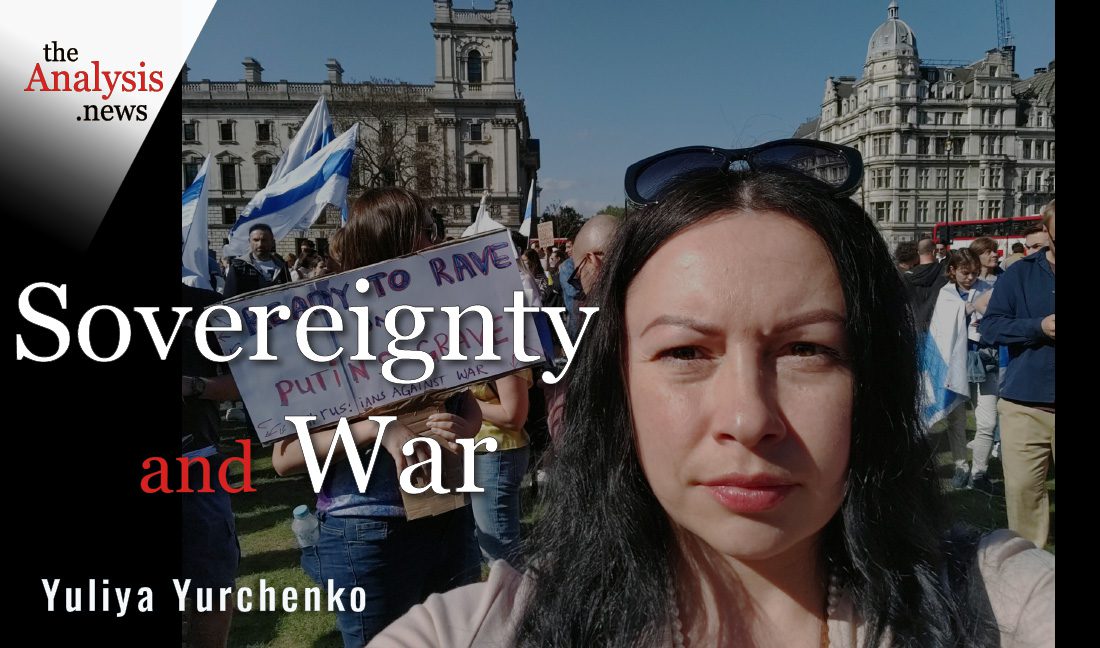


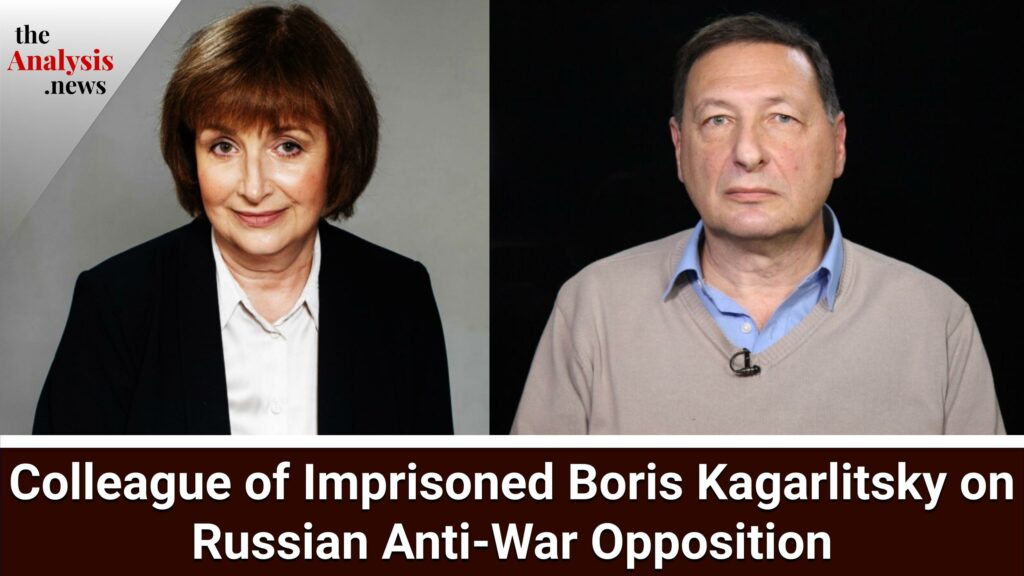
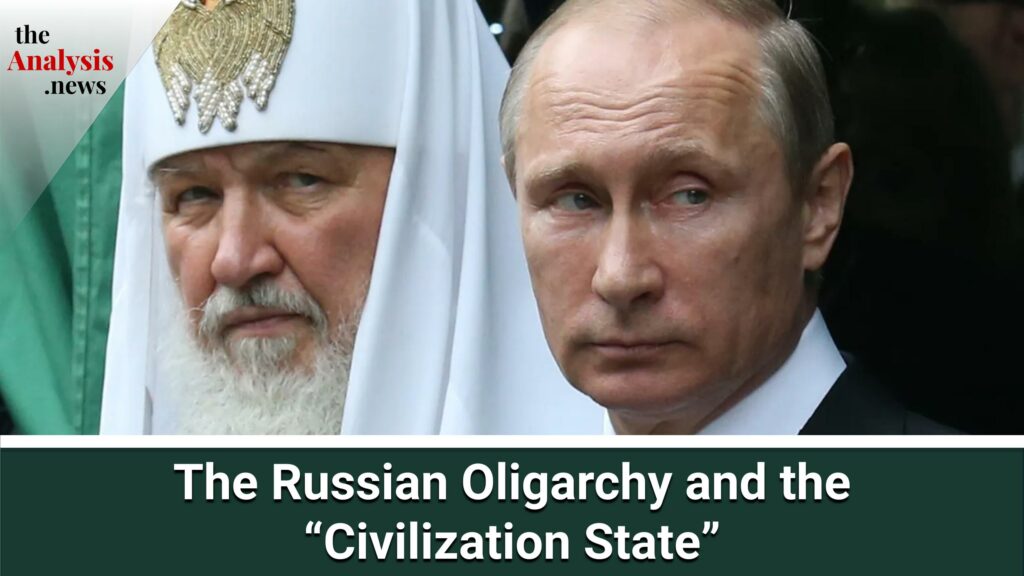
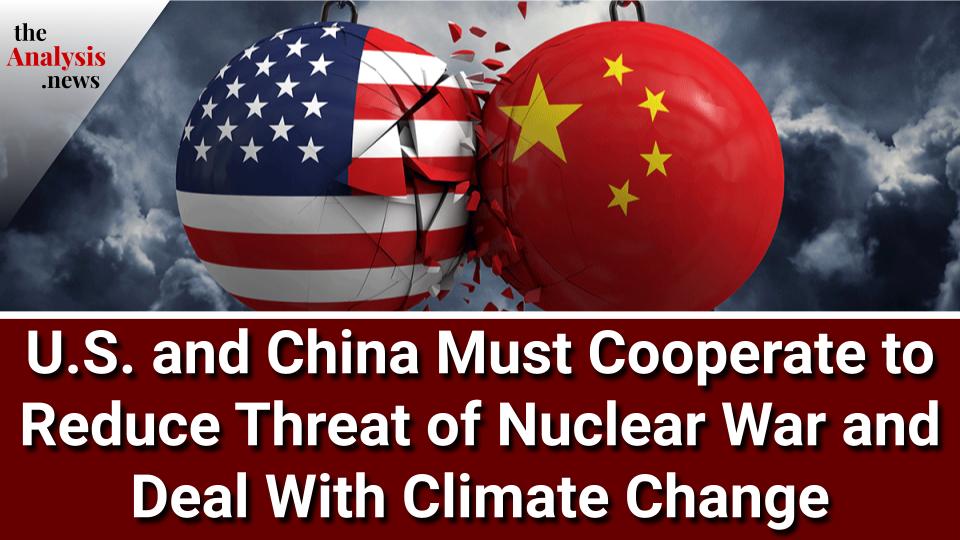
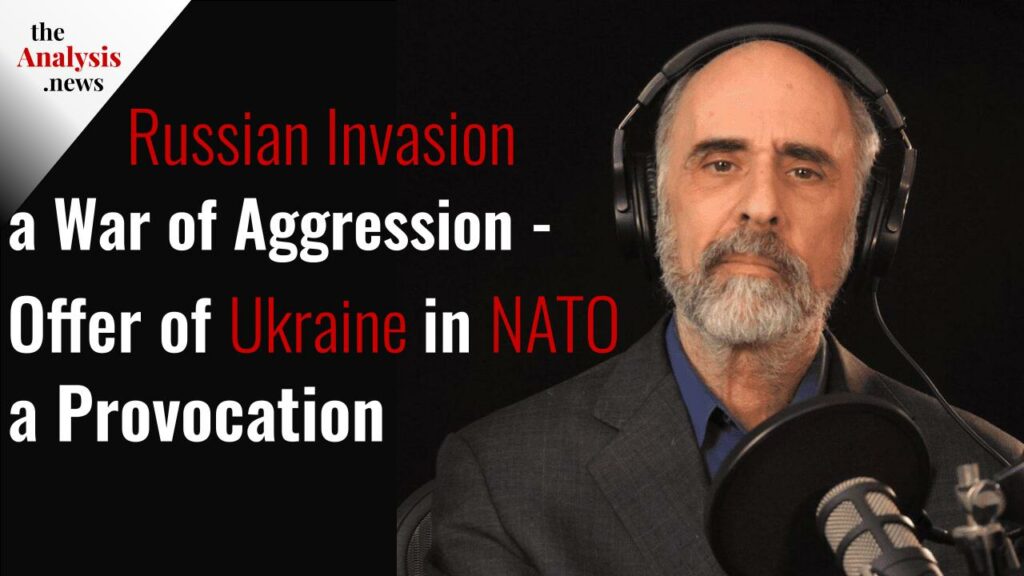
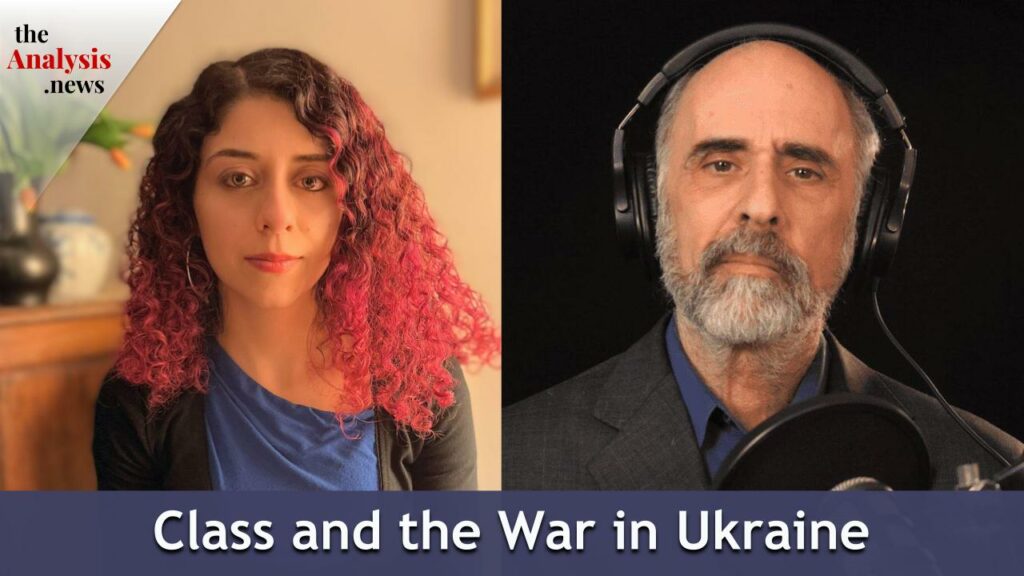
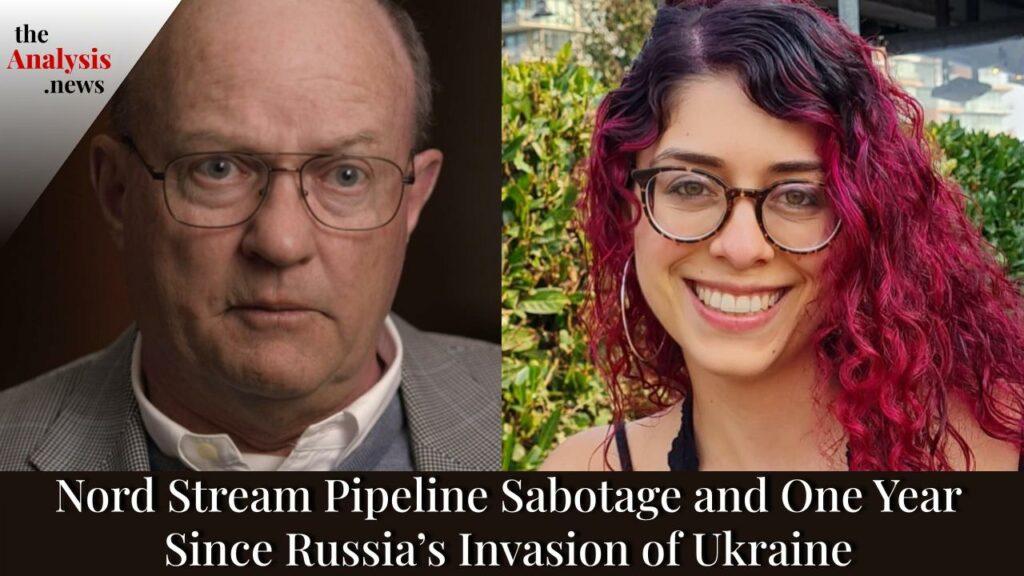
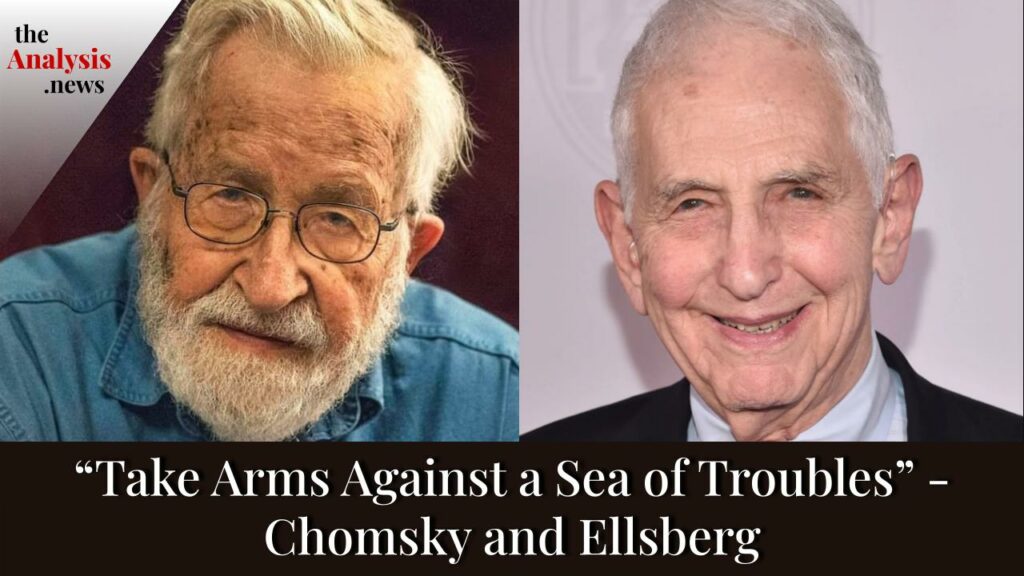
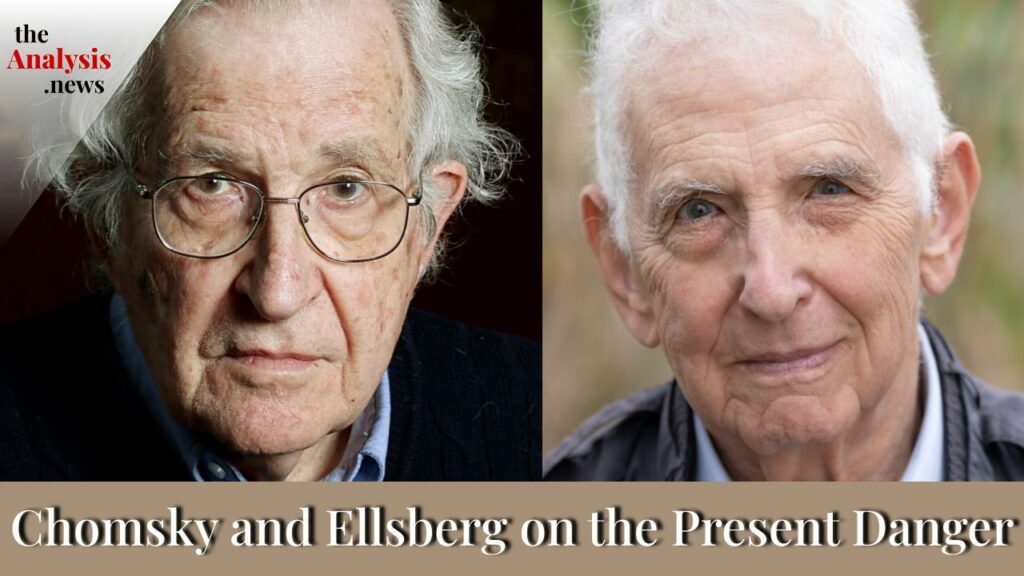
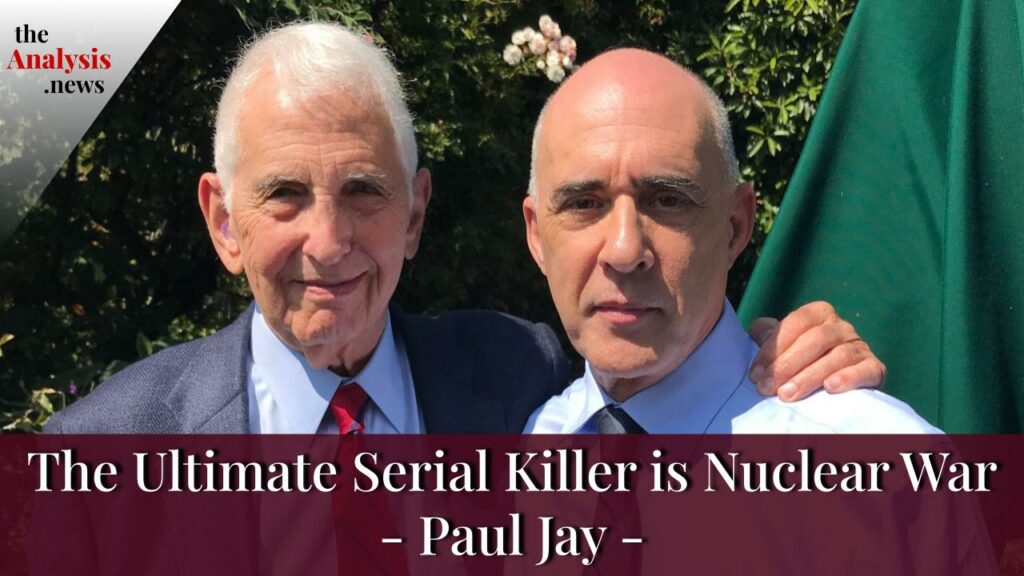

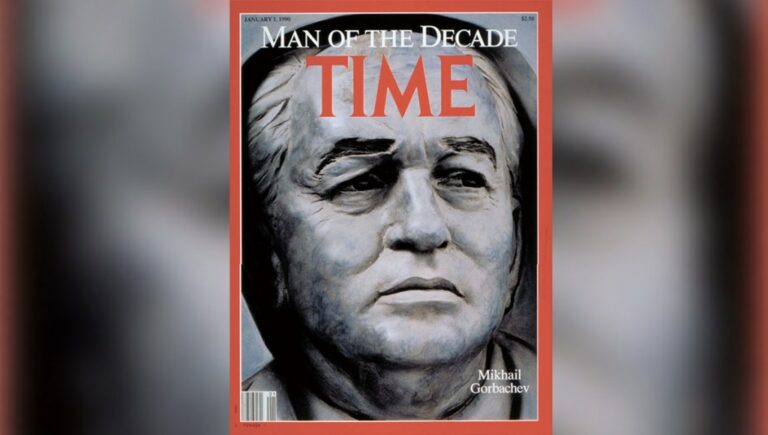

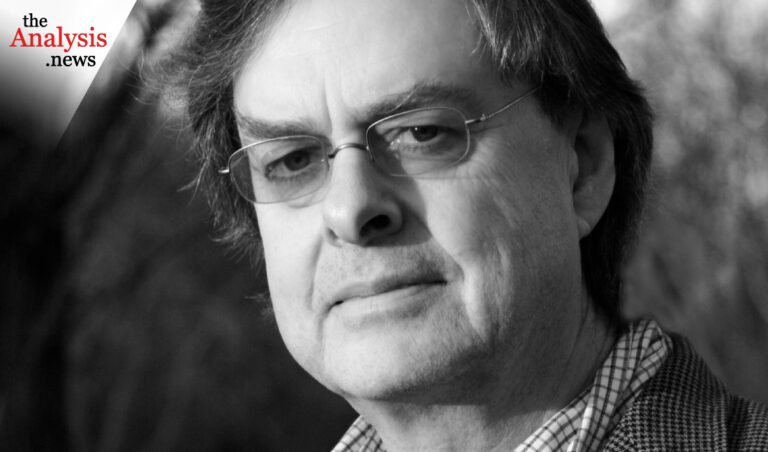
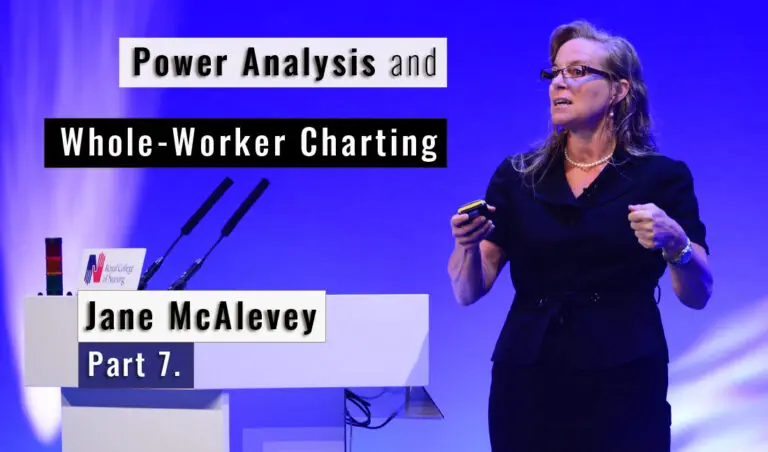

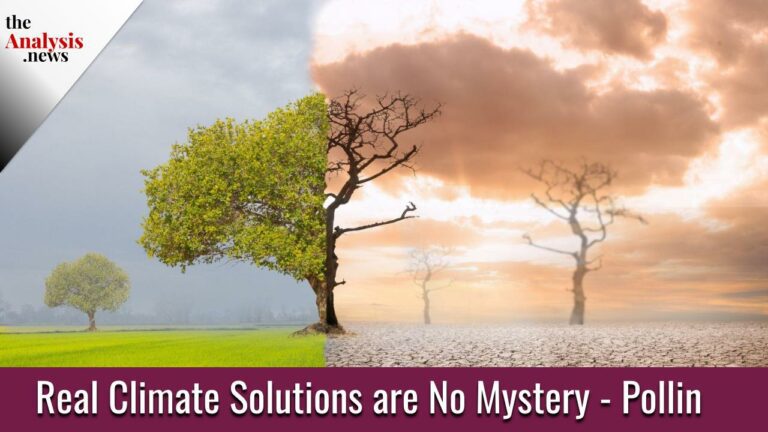
John,
excellent reply. I think the answer that the interviewer doesn’t consider these substantive questions is……. because……. she is spreading propaganda. Period.
This was a confict that Russia had not wanted. Over and over, Lavrov/Putin were making overtures of ending the killing of thousands of Russians in E. Ukraine. The Minsk accords were not supported by either the French or Germans who signed on. The Americans never even responded to the Russian request forending the shelling of the Donbass region. They were given proposals and didn’t respond.
We now know, that the incipient event was the 60k Azovs stepped-up shelling of the Donbass.
Multiple times, the EU or USA could have ended this thru diplomacy. Instead the only response was the USA giving cookies and training to neo-nazis as well as the Ukrainian regular army. This is the same footprint of CIA destblization we have witnessed all over the world for decades.
Michael Hudson is right. Biden has just increased the time in which de-dollarization will occur and the loss of American power.
The USA ‘arrogance of power’ still , to this date, doesn’t realize that this is a multipolar world. It empire is disintegrating and good riddance.
If you want to know someones real position on the issue of Russians in Crimea, ask them about the North_Crimean_Canal. https://en.wikipedia.org/wiki/North_Crimean_Canal
This water channel was providing most of Crimea’s water prior to its cut-off by Ukraine, which created a lasting economic and ecological catastrophe in Crimea. So, on the one hand, the government of Ukraine was talking about protecting it’s citizens in Crimea, on the other — they cut off its main water source.
I smell growing fear in the West. Denials abound. “We do not seek regime change. We will protect the environment. “
Oops did we start to bomb little Somalia again? Oops are we trying for regime change in Ethiopia? Did we just stop the Arctic counsel from talking with Russia about Arctic problems? Yes, the Arctic council did just that. But this site ran Juice Media.
Has the U.S. addressed the fires and floods across the U.S? Has the U.S. addressed the infant formula shortage or its lack of universal health care? Apparently, sending money to Ukraine is far more important. Going after Venezuelan oil is far more important.
The American Midwest was once a world grain capital. What happened?
I smell real fear. Despite Biden’s claim, the rouble is not rubble.
Russia has wheat; Russia has potash; Russia is rich in natural resources, resources the West desperately needs and wants.
Capitalism must feed; it is an un-sated vampire.
Remember when Bechtel said they owned the rain in little Bolivia? Peasants had no right to collect the rain. Bechtel claimed water rights! Bechtel, headquartered in Virginia or San Francisco, is the real face of capitalism.
In its lust for power and dominion, the West has destroyed one country after another, including itself.
>>Yuliya Yurchenko : So what we have now is a U.S. vision of the final point of this war, coinciding with the vision that exists within Ukraine. For better or for worse, this is the political reality right now. <<
How about that, huh?
A key lesson of the 2003 Invasion of Iraq was the neo-conservative and pentagon's deep use of "human's right internationalism" to get their long-desired war going. Neo-conservatives ruthlessly exploit liberals and idealism to get war, I'd say they specialize in it. I'm been an activist long enough now to know how we get exploited.
I highly recommend reading about arch neocon James Woolsey's seduction of liberal reporter David Rose as recorded in Roson's 'The Man Who Pushed America To War: The Extraordinary Life, Adventures, And Obsessions Of Ahmad Chalabi '(2008). Rose later expressed bitter regret to John Pilger,“I don’t think people quite realise how cynical the process of manipulation by those who really wanted this war was. Having been part of that process, I still feel ashamed and disgusted at having been duped to that extent and having been caught up in it.”
I also recommend the essential 'Lockheed Stock and Two Smoking Barrels' by Richard Cummings which chronicles the exploits of Bruce Jackson, who was the 'activist' leader of the 'Project on Transitional Democracies' and the 'Committee for the Liberation of Iraq' by night and director of strategic planning for Lockheed Martin Corporation by day. (He was also the president of the 'U.S. Committee to Expand NATO'….) Jackson thought the Lockheed's goals in Iraq aligned perfectly with Iraqi Sunnis' quest for democracy.
Thanks to Paul Jay for sticking with this and trying to sort it out and the level of informed commentary in these forums.
YULIYA YURCHENKO seems to have a agenda in line w the u.s. oligarchy. I was glad that you finally started to push back towards end of interview. I have little confidence in members of the Woodrow Wilson institute who are life long academics claiming they are in touch w the needs and desires of any countries masses. Perhaps it is unfair, but she reminds me of big talking , well off , IRA supporting Irish Americans going on vacation to Ireland and talking big about fighting the British and then going home.
Cynical Rex: Your comments find much resonance in my thinking. Could you suggest what would have been for Pres Putin a better alternative to invading Ukraine after it became clear that the Minsk agreement was dead and that the West had no interest in Russia’s security concerns?
Thank-you goedelite, I’ve also valued your comments and detailed arguements. I think the key for Russia (and China) was to support European independence from the United States, which would have allowed the Nordstream 2 project to go online, and greater economic integration with the EU (via investment from China’s belt and road initiative). With the Ukraine war, those possibilities have largely ended, and Europe is more dependent on US leadership than ever. Such a political effort would have required Russia and China to wage a soft, diplomatic struggle with the US over Europe, since before the Maidan revolution. Looking at the situation now, it would have enabled economic prosperity for Europe to grow closer to Russia and China, rather than be hurt by its own Russian sanctions.
Another angle is the Donbas, where Russia believed an invasion was imminent. Long before this, Russia could have asked for a UN peacekeeping force (such as from India) to create a buffer between Luhansk and Donetsk and the rest of Ukraine: ethnic Russians could have pulled behind the line, with Russian humanitarian aid, and Ukrainians occupy the west of the line. However, this would have allowed the US the initiative and they may have undermined this process, as they have been preparing Ukraine for a confrontation with Russia for the last 8 years. I don’t have the intelligence sources Putin has, so his call to support the independence of Donbas with a military intervention is justified only if an attack was indeed threatened. I agree with Paul that Russia also saw an opportunity to seize a region rich in resources and industry..
My main concern has been that Russia has walked into a US trap. Listening to analysis like on The Duran (Scott Ritter interview: https://www.youtube.com/watch?v=SN7o-ThhFfY, and Andrei Martyanov interview: https://www.youtube.com/watch?v=IPrDl414AFM), as well as Larry Johnson (https://sonar21.com/), Putin may have understood that NATO is not an equal to the Russian army, far from, and that after removing Ukrainian offensive capabilities, Russia could negotiate an end to hostilities from a position of strength. It appears that the Ukrainian army is exhausted, has low morale, and as long as Russia has “full spectrum dominance” versus Ukraine, it doesn’t have to fear an 1980s Afghan style guerilla war. At this time, it seems like Putin made an effective call in surprising the Ukrainian army on Feb 24th, grinding its forces down over 2 months while minimizing its own and civilian casualties: effective as long as Ukraine cannot rebuild its offensive capabilities with help from the West, and as long as NATO cannot field an effective army, or tries to escalate to nuclear war.
Cynical Rex: There is nothing cynical in your views. Au contraire! You saw possibilities for peace, which did not materialize well before the Ukraine war: “the Nordstream 2 project to go online, and greater economic integration with the EU.” You wrote, “Europe is more dependent on US leadership than ever.” I wonder what the pressures are that drive presumably rational leaders in Sweden and Finland to be more dependent on US “leadership” than ever. Are the pressures from dependence on their corporate donors? Isn’t it true that Russia and China had tried to wage a soft, diplomatic struggle with the US over Europe and over Taiwan since before the Maidan revolution but that the US returned nothing but provocations? It seems that rather faulty assessments by US policy-makers did not expect Russia to withstand the US sanctions and have been taken aback by the energy and grain problems and consequent inflation produced by Russian retaliatory sanctions. The most sobering consequences are in prospect in the long-term for us in the US: inflation, threats to the reserve currency status of the US$, growing social unrest in the “heartland” (extreme politics, racism, violence, rising poverty).
goedelite: You wrote ” Isn’t it true that Russia and China had tried to wage a soft, diplomatic struggle with the US over Europe and over Taiwan since before the Maidan revolution …?” This question got me researching the history of the Minsk accords, and my assessment over Russia’s motives have changed: I suspect Russia did not want integration of the Donbas with Ukraine, as there are many sources indicating Russia violated or obstructed an implementation of the Minsk accords (for example see: https://en.wikipedia.org/wiki/War_in_Donbas). I have encountered mention of Russia refusing peacekeepers and enabling the civil war in the Donbas region (for example, see from March 2021: https://www.aa.com.tr/en/world/us-slams-russia-for-not-implementing-minsk-agreements/2437274). Russia would accept the independence of the Donetsk and Luhansk provinces (oblasts), while Ukraine (supported by the US after Maidan) would not accept the loss of this territory, as Yuliya indicated in the interview. My understanding is eastern Ukraine is rich in resources and the industrial heartland, and neither side in this conflict wants to relinquish control.
I remember prior to Feb 24, most observers did not believe Russia would invade, including myself. If it can be accepted that Russia was only willing to support the Donbas’ independence, not its peaceful integration with Ukraine, the military intervention makes more sense. The US, with its control of the Ukrainian govt and support of the neo-nazis, threatened the independence of the Donbas, and would eventually threaten Russian control of Crimea.
….
Regarding Europe: The US re-asserted its leadership of NATO (and therefore, Europe) with the Russian intervention on Feb 24. Europe has become a bystander in the greater conflict between the US and the Russia/China alliance. I cannot see a direct political or economic gain for Europe by joining NATOs crusade against Russia: it would have made sense for Europe to agree to Ukrainian neutrality and referendums in the Donbas region for independence, which would satisfy Russia. However, once Russia invaded this solution was off the table, as Russia immediately became the villain, and NATO given new purpose: it was hard, if not politically impossible, for Europe’s govts to -not- condemn the Russian invasion, and the news media only reinforced this perspective.
That Russia and Europe did not have the foresight to come to a peaceful resolution over Ukraine is the great tragedy, but this turn of events increases US prestige and advantage (economically, geo-politically), assuming it can defeat Russia, or at least find a mutually face-saving peace agreement, and avoid a nuclear war.
I want to clarify my latest comment, as it changes an earlier opinion:
I see the conflict in Ukraine as a struggle between US and Russian interests. If the EU (and Russia, Ukraine) had the foresight to allow independence of Donetsk and Luhansk oblasts (essentially coming under Russian influence), incorporate the western Ukrainian rump state into the EU (while confirming Ukraine would never join NATO), a war would have been avoided, and the greatest benefit given to the Ukrainian people and ethnic-Russians in Donbas.
Neither the US nor Russia would be satisfied with the Minsk accords, given the political situation in Ukraine. The Minsk accords did not change the fact that Ukraine was a US proxy after the Maidan revolution: would Russia be happy to just let the US consolidate control of Ukraine, under the neo-nazis? And the opposite is true, would the US benefit from Donbas independence, where Europe was at peace with Russia, and the economic relationship between Europe and Russia/China (BRI) was growing stronger each year? This war is a complex interplay of Russian security concerns and US world hegemony, and neither side is the “good guy”.
I appreciate Yuliya’s passionate interpretation of the situation in Ukraine and agree whole heartedly that this war must stop immediately. For the sake of peace, people’s lives, property, and environment the guns must be silenced. Then a peace deal can be hammered out, war crimes investigated and reparations made. It might take ten or twelve years to figure out but the job can be done if the parties are willing. In a traditional narrative this interpretation could ring true, however, if you dig beneath this interpretation you will find hidden vested interests here at play. Now I don’t claim to be an expert but in the last 300 years nations have gotten rich by exploiting colonies overseas. I don’t think much has changed except now there’s a despotic state trying to grab up colonies and Ukrainian land is the place to go. How does the situation appear? Basically a despotic tyrant with a corrupt oligarchy moving in for the grab all being justified by an alter boy priest and an army with destructive nuclear weapons. The type of business small minded people in the world engage in. Small minded meaning that they’re all-in including the skin of their teeth. Enlightened people take over countries in subtle ways and are way more effective, even invisible. They call themselves Enlightened because they put together advanced institutional machinery that does the work for them and take a long term approach. They call it waiting for an apple to fall into the basket.
Could you offer an example of a war that was ended by a cease-fire before a surrender or a successful peace conference was concluded?
All good, right-thinking people tell us, “Yes, Russia was being pushed to its borders by armed, hostile neighbors, but it should not have invaded Ukraine.” No one tells us what else Russia should have done.
1. China has brought more people out of poverty than any other country in history.
2. She did not explain how the 2014 U.S. backed coup to overthrow a democratically elected government by the Bandera (a WW-II Nazi collaborator, who is there hero) militias was ”Constitutional.”
3. She did not explain why 14,000 Russian speaking Ukrainians in the Donbass had to be killed starting in 2014.
4. She did not explain why the Minsk-II agreement, which would have prevented this war, was not implemented by Ukraine.
5. ”You’re going to need to ask people on the front line.” I agree. Paul will you please interview one of the English speaking reporters, on the frontline in Donbass, to give another side of the story.
Graham Phillips (British)
https://www.youtube.com/c/GrahamPhillipsUK/videos
Patrick Lancaster (U.S.)
https://www.youtube.com/c/PatrickLancasterNewsToday/videos
Eva Bartlett (U.S.)
https://www.youtube.com/c/EvaKBartlett/videos
Thank you.
1. Officials of the US government have already said that the goal of the conflict, from the US point of view, is to weaken Russia.
2. a) Russia was not strong enough, militarily or otherwise, to respond to Latvia’s accession to NATO, in 2004. b) The comparison is faulty because Ukraine is not a NATO member, and Article 5 could not have been invoked as would have been possible with Latvia.
3. An oligarchy is the ruler. It is not run by another entity, such as the KGB.
4. The years of negotiations since 2014, chiefly two Minsk agreements, led to a UN ratification. The agreements were then undermined by Kiev’s leaders with the support of the US, France and Germany. Russia properly insisted on the implementation of the Minsk agreements.
5. Instead of Minsk’s implementation, Ukraine was armed by the US and NATO, and Ukraine’s army made war on the Russian speaking Donbas region. Over 14,000 people have been killed in Lughansk and Donetz by Ukrainian artillery.
6. In December 2021, Russia made a final effort to make clear its security needs but it was ignored. Meetings with NATO leaders revealed their deafness to Russian security needs. Pres Putin could not allow Ukraine to be increasingly armed while Russia did nothing. Russia invaded to protect the Donbas and to create a land-bridge to Crimea. Putin had no choice.
7. Hostilities between Russia and Ukraine will continue so long as the US and NATO pursue them. I do not believe that the US and NATO want to be drained without end by its proxy war . US interests are now in the western Pacific.
8. Nuclear war and/or climate catastrophes may end the US/Russian War by Proxy.
Where do you get “Over 14,000 people have been killed in Lughansk and Donetz by Ukrainian artillery.”? UN says 3,400 were killed between 2012-2016, but from 2018-2021 a total of 310. UN says in 2021 it was 10.
Once source is from “The International Crisis Group”. It’s website address is https://www.crisisgroup.org/content/conflict-ukraines-donbas-visual-explainer. Its second paragraph begins with, “The armed conflict in Eastern Ukraine started in 2014. Between then and early 2022, it had already killed over 14,000 people. Over the course of eight years, Ukrainian government forces fought Russian-backed separatists for control over much of the two heavily industrialised regions of Donetsk and Luhansk, also known as Donbas.” I would suggest that Alexander Mercouris or Alex Christoforou could offer other sources for data.
I would be careful about trusting most reports on casualties during the “fog of war”. Foreign correspondents from independent, trusted news media have been particularly absent in this conflict since 2014. Indeed, the question of existence of ANY trusted news media is a cogent one. The war by Ukraine against the separatists in the Donbass, a region with over 3.6 million people, has been conducted by heavy artillery shelling. It is not hard to believe that over a period of years since 2014, that 14,000 people would be killed. The number by the UN of 3,400 seems a bit light.
The 14,000 number comes from the same UN report. I’ve cited it in several interviews
To help me understand these numbers better, how many Americans were killed in Somalia in 2021 e 2022 ?
Paul;
I imagine this comes up a lot when doing interviews, where the guest refuses to listen or be willing to change their minds: Yuliya fixated on Ukrainian nationalism, while condemning Russia and minimizing the independence movement in the Donbas. I can accept that Russia made a stupid move by uniting NATO, and Europe made an equally a stupid move by strengthening NATO and joining sanctions on Russia, which hurt their own people. However, geopolitics between the US and Russia/China is central to this conflict. You cannot have a free Ukraine without interference from both Russia and the US, no matter how strongly Yuliya feels about the self-determination of the Ukrainian people.
Putin has said himself that the US disregards Russia’s security and he sees the expansion of NATO as an existential threat to Russia itself. I suspect Putin saw the tensions with Ukraine as an opportunity to control the Donbas and a land bridge to Crimea, as you stated, but as a recent interview with Ray McGovern and Scott Ritter attested (see: https://www.youtube.com/watch?v=m4SlSILtlpc), the US has been sailing nuclear capable ships into the Baltic, placing missile sites in NATO countries within range of Russia, as well as arming and training the Ukrainian armed forces for the last 8 years. Russia was provoked over Ukraine just as the US is doing now with China and Taiwan. The United States is losing economic strength (gradual loss of reserve currency status) and prestige, and is conspiring to cause sanctions or military defeat on the rising power that is the Russia/China alliance. Already China can be said to have surpassed the US in some technical areas (hypersonic missiles, 5G cellular), which is remarkable given the history of China in the 19th and 20th centuries, and its abuse by European powers.
…
As requested earlier, can you discuss what the rest of the world should do in the face of the neo-liberal ideology and US imperial ambitions? How does Russia or China defend itself from US aggression, especially if the US ignores, or worse, undermines diplomacy?
Also, could you do an interview with an activist from the Donbas, as well as Peter Lavelle from Crosstalk, basically the last english program on RT, who regularly features critical discussion of the Ukraine war?